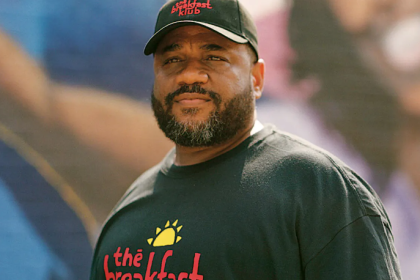A personal journey from yo-yo dieting to sustainable health success

Early challenges with weight management
Growing up, weight management was a constant battle. Diagnosed with polycystic ovary syndrome (PCOS) at the age of twelve, the struggle with obesity began early in life. PCOS, a condition that affects hormone levels and can lead to weight gain, made it even more challenging to maintain a healthy weight. Despite access to healthcare, professional advice, and nutritional guidance, establishing lasting healthy habits seemed elusive. This began a pattern of yo-yo dieting, where temporary weight loss was often followed by inevitable weight gain, creating a cycle of frustration and discouragement.
In those formative years, social pressures and the emotional toll of being overweight played a significant role in shaping self-esteem. The frustration of not meeting societal beauty standards and feeling isolated led to a complex relationship with food and body image. Each failed attempt to lose weight only deepened the sense of defeat, making it harder to believe that lasting change was even possible.
Journey to surgical intervention
After years of battling obesity and reaching 371 pounds, the decision to seek out bariatric surgery was made. The weight had become more than just a cosmetic concern; it was a serious health issue. Issues such as joint pain, difficulty with basic activities, and the risk of developing other serious conditions like heart disease and diabetes were pushing for a change. Despite multiple attempts at weight loss, none had proven successful. For the first time, surgery seemed like the only viable option to regain control of both physical and mental health.
Choosing to undergo bariatric surgery required careful consideration and significant lifestyle changes. There were months of preparation, including consultations with fitness professionals, nutritionists, and psychologists to ensure a holistic approach. It wasn’t just about the procedure itself but preparing for the life afterward. One of the biggest hurdles was mentally accepting the choice, as surgery was often seen as a last resort for many people struggling with weight. However, understanding that surgery could serve as a tool rather than a “quick fix” provided the clarity needed to move forward.
Surgical experience and recovery
In November 2021, the decision to undergo a vertical sleeve gastrectomy (VSG) procedure marked a pivotal shift in the weight loss journey. This surgery, which involves reducing the size of the stomach to limit food intake, was not a cure-all. It required a long, detailed recovery process, both physically and mentally.
Immediately after surgery, the focus was on recovery. The first few months were dedicated to careful attention to nutrition and hydration, with small meals and specific dietary guidelines. Gradually, physical activity was reintroduced, starting with light exercises and walking. As the months progressed, the weight continued to drop, and the physical transformation became visible. The decision to have the surgery wasn’t just about losing pounds but reclaiming health and reclaiming confidence.
While weight loss began to take shape, the recovery phase brought its own set of challenges. The body had to adjust to a new reality, and the temptation to fall back into old eating habits was ever-present. With this, the need for emotional support and guidance became clear.
Mental health integration
Alongside the physical changes, the journey revealed that mental health was just as crucial as physical health in maintaining a sustainable weight loss. Therapy played a major role in navigating the emotional complexities that often arise during significant transformations. Addressing food-related behaviors, understanding triggers for emotional eating, and reworking the relationship with body image became vital components of the recovery process.
Therapy provided a space to explore the deep-rooted emotional challenges that had influenced weight gain. It allowed for a deeper understanding of the cycles of stress eating, emotional triggers, and the underlying beliefs that had contributed to unhealthy habits. In this process, it became evident that maintaining weight loss was not just about eating less and exercising more; it was about understanding why the habits developed in the first place and healing from them.
Sustainable lifestyle development
One of the most significant lessons learned from the transformation journey was the importance of a balanced, sustainable lifestyle. After surgery, the focus was not just on drastic restrictions but creating habits that could be maintained long-term. The 80/20 approach to nutrition emerged as a central principle. This approach focuses on maintaining a healthy diet 80% of the time, allowing room for flexibility and indulgences the other 20%. This balance helped make the process feel less like a restrictive diet and more like a lifestyle change.
Exercise also became a non-negotiable part of the routine. Gradually increasing physical activity levels to include weight training, cardio, and flexibility exercises helped keep the body strong and energized. This routine not only facilitated weight loss but contributed to an improved mental outlook and boosted confidence.
By consistently integrating healthy eating habits and exercise, the progress continued steadily. Over the course of two years, a total weight loss of 200 pounds was achieved, marking a significant transformation in both body and mind.
Lasting change and commitment to lifelong wellness
The journey from obesity to a healthy weight was not an easy one, but it demonstrated that true transformation requires addressing both the physical and mental aspects of health. Weight loss is often seen as a numbers game, but in reality, it is a complex process involving emotional healing, lifestyle changes, and continuous support. The physical changes are just the beginning. More importantly, this journey was about reclaiming a sense of control and well-being that had long been lost.
As this journey continues, the commitment to wellness remains strong. This transformation is not a destination but a lifelong commitment to health, happiness, and balance. Every day presents new challenges, but with a foundation built on physical strength, mental resilience, and emotional healing, the focus remains on sustaining the progress made and living a healthier, more fulfilling life.















